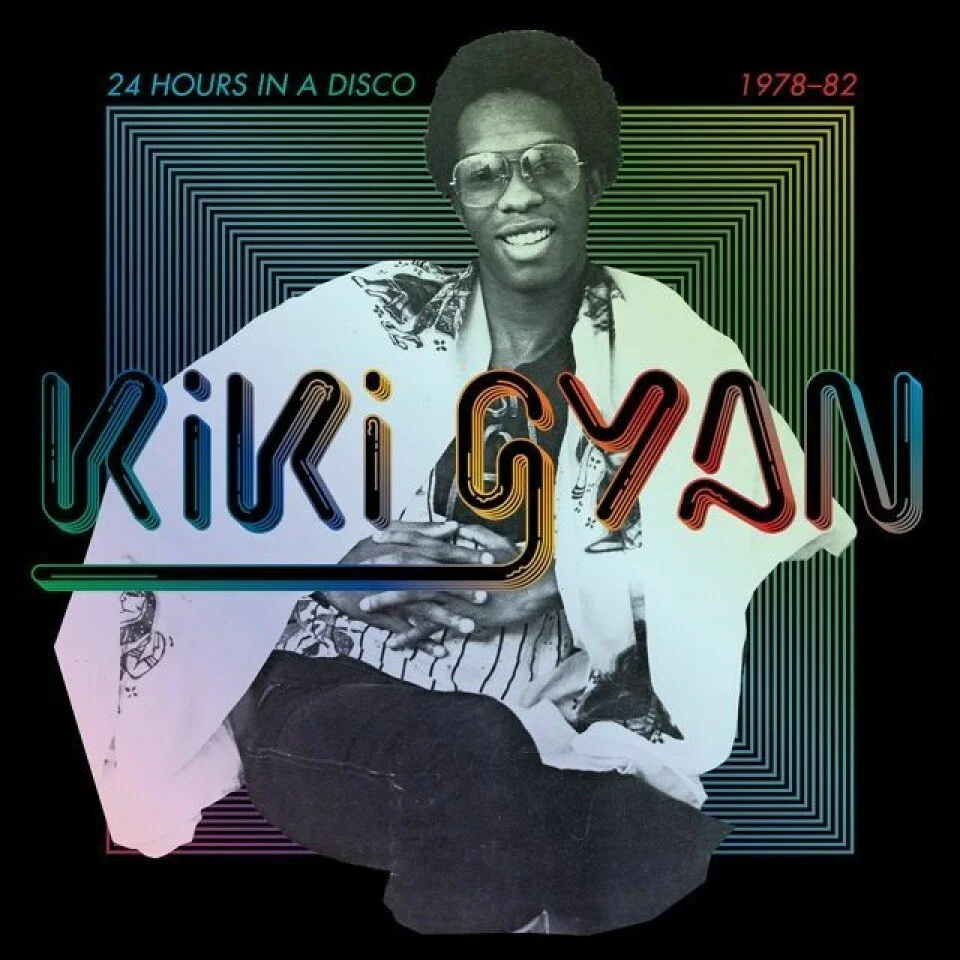Kiki Gyan: Ghana’s Funkadelic Meteor Who Outdanced Time Itself
By V. L. K. Djokoto
My dear reader, if you’ve never heard the name Kiki Gyan, you’ve been missing out on one of the most dazzling, disco-drenched comets ever to streak across the firmament of African music. He was Ghana’s answer to Prince, Herbie Hancock, and perhaps even Mozart — only with far better hair and infinitely more groove.
In the 1970s, while most were fumbling with bell-bottoms and platform shoes, Kiki was already a keyboard wizard — a teenage phenom who could make the piano giggle, weep, and perform backflips with an elegance that would make even Stevie Wonder pause mid-riff and say, “Who’s that chap from Accra?”
Born Kofi Kwarko Gyan in Takoradi in 1957, the boy was a prodigy from the start. At twelve, he was touring with local bands; by fifteen, he’d joined the legendary Osibisa, that Afro-rock juggernaut which blew open the world’s ears to Ghana’s rhythms. Picture it: London, 1972 — Afro hair glistening, the Hammond organ roaring, and Kiki’s fingers flying over the keys like caffeinated hummingbirds. The man didn’t play notes; he detonated them.
There was, in Kiki’s music, a kind of theology — the Church of the Eternal Funk. Listen to “24 Hours in a Disco,” and you hear not just a tune, but a sermon in rhythm: the celebration of youth, velocity, and joyous abandon. It was Ghana gone global, a slice of Accra nightlife teleported into the Studio 54 cosmos.
Kiki embodied that audacious optimism of post-independence Africa — that roaring belief that our music, our joy, our madness, could take on the world and win. For a fleeting, glorious moment, it did.
But alas, as with many celestial bodies, what burns brightest also burns fastest. The world of disco was not merely champagne and strobe lights; it was also temptation in powder form. By the time the 1980s arrived, Kiki’s career — like a malfunctioning record — began to skip.
The young man who had performed before princes, presidents, and pop gods fell victim to the very hedonism that had once fuelled his art. There’s something Shakespearean about it all — the prodigy who conquered the stage, only to be conquered by his own demons.
By his thirties, the prodigy was a ghost of himself — the glitter gone, the groove muted. And when Kiki Gyan passed away in 2004, alone and impoverished, it felt not just like the death of a musician, but the dimming of an entire era of African exuberance.
And yet, Kiki’s spirit — that unmistakable Ghanaian swagger — refuses to fade. DJs still resurrect his beats in Accra’s bars; young producers sample his riffs; and those who listen closely can still hear his laughter echoing between the chords.
Because, you see, Kiki was more than a keyboardist. He was a metaphor — for genius unrestrained, for the glorious risk of being too talented, too fast, too alive. He was what happens when Africa’s rhythm meets the reckless energy of youth and the seductive promises of the world stage.
If there is a moral in the tale of Kiki Gyan, it is this: brilliance alone is not enough. The world, dear reader, is littered with the bones of men who were too dazzling for their own good.
But oh — what a blaze they leave behind!
Kiki’s music remains our sonic inheritance, a time capsule of possibility. In every thump of his bass line, in every joyous swirl of his synthesizer, we are reminded that Ghana once produced a man who could make even London dance to our rhythm — and that, my friends, is no small feat.
So, the next time you feel the night stirring with mischief, put on “24 Hours in a Disco.” Raise a glass. And remember Kiki Gyan, the boy who played faster than time — and whose music, by some miracle of funk and fate, never truly stopped.
